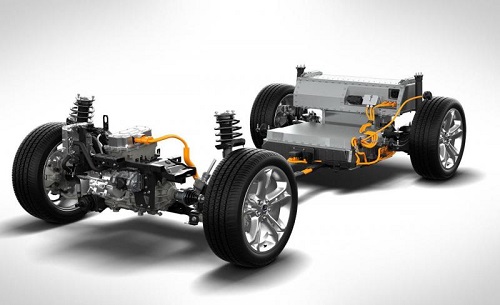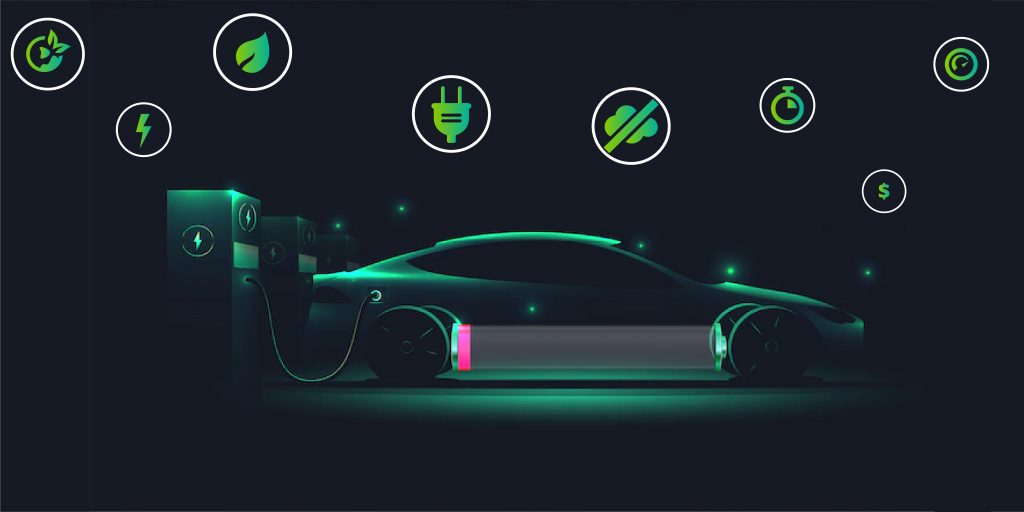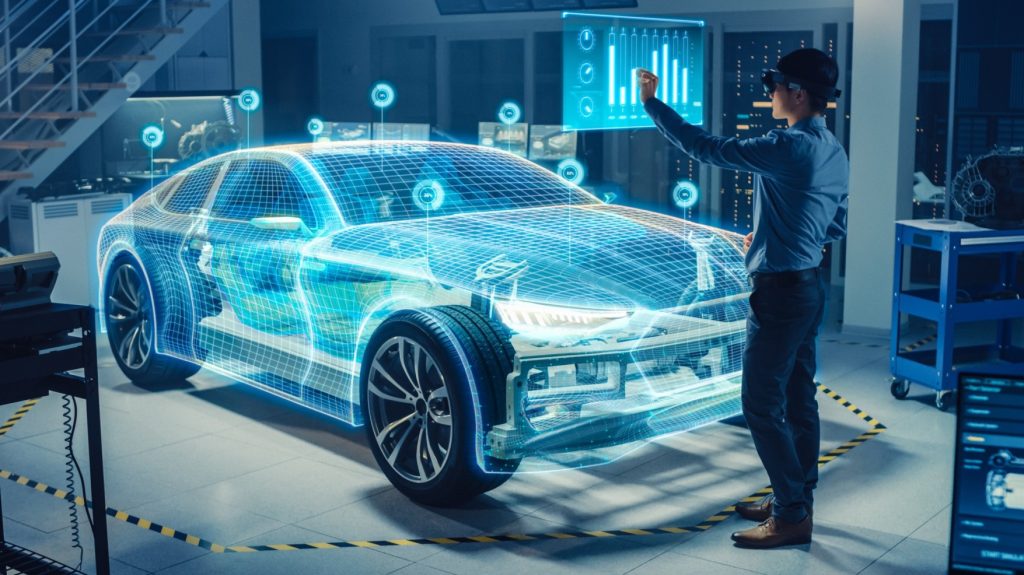Elevating Electric Mobility: The Crucial Role of Powertrain Testing in EV Success
Electric vehicles (EVs) are transforming the automotive industry with their eco-friendly nature and promising potential to reduce carbon emissions. Electric vehicles (EVs) have experienced a surge in popularity in recent years, and one of the key factors contributing to their widespread adoption is cost optimization. As technological advancements continue to drive down production costs and increase operational efficiencies, EVs have become more affordable, making them an attractive option for consumers. As EVs gain popularity, ensuring their performance, reliability, and overall efficiency becomes essential. One critical aspect of achieving this is thorough powertrain testing.

Powertrain testing in EV development is crucial for optimizing performance and enhancing efficiency. Engineers can fine-tune the powertrain system through rigorous testing, achieving optimal acceleration, range, and vehicle dynamics.
Efficiency evaluations help identify areas for improvement, such as reducing energy loss and enhancing regenerative braking performance, leading to increased range and reduced environmental impact. Safety and reliability are paramount, and powertrain testing assesses critical systems like high-voltage components and battery safety. Simulations under extreme conditions enable manufacturers to identify risks and implement necessary safeguards, ensuring the overall safety of EVs.
Durability testing focuses on assessing the lifespan and performance of components, particularly batteries, in real-world conditions. This knowledge aids in optimizing battery management systems and ensuring long-term viability. Advancements in testing technologies, such as virtual simulation and accelerated testing, expedite the process while maintaining accuracy.
Virtual simulation allows engineers to analyze scenarios before physical prototypes are built, reducing time and costs. Accelerated testing exposes components to extreme conditions, providing valuable data on performance and durability in less time. These advancements streamline development and facilitate the wider adoption of EVs
Performance Implications of Inadequate Powertrain Testing in EVs:
Inadequate powertrain testing in Electric Vehicles (EVs) can have far-reaching consequences on the overall performance and reliability of the vehicle. During the development and validation process of EVs, powertrain testing is a crucial step that should not be overlooked. When this testing is not carried out thoroughly, it can result in several significant issues.
Firstly, suboptimal calibration of powertrain components, such as the electric motor, battery management system, and power electronics, may occur. This can lead to reduced energy efficiency and range, as the powertrain may not function at its full potential or may waste energy due to inefficiencies.
Secondly, inaccurate range estimations become a concern. Range anxiety is a significant worry for EV owners, and if powertrain testing does not accurately reflect real-world driving conditions, it can lead to unexpected battery depletion during trips, causing inconvenience and uncertainty. Moreover, inadequate powertrain testing can lead to limited performance in EVs.
Safety is a paramount consideration in vehicle design, and powertrain testing is crucial for identifying potential hazards. When testing is insufficient, issues with the powertrain might go undetected, compromising vehicle safety. For instance, faulty powertrain components could lead to unexpected loss of power, overheating, or other hazardous situations.
To enhance the performance and safety of modern EVs, it is crucial to thoroughly test their complex software-based powertrain systems during development and validation. Inadequate testing can overlook software glitches and bugs, leading to unexpected malfunctions.
By conducting comprehensive and rigorous powertrain testing, automakers and EV manufacturers can identify and address potential issues, optimize performance, ensure safety, and improve the overall reliability and efficiency of Electric Vehicles. EVs commonly utilize two types of powertrains, namely Belt driven and Gearbox driven, both of which can be tested using a transient dyno setup to assess complete system efficiency from battery to wheel.
Various gear ratios and torque values are also examined for all gearbox types. Implementing the same Motor test bench with its transmission streamlines the process, reducing additional setup costs and efforts, with iASYS offering valuable support in this endeavor.
Benefits of powertrain testing in EV vehicles:
Performance Optimization: Powertrain testing allows manufacturers to optimize the performance of EVs. Engineers can enhance acceleration, range, and overall vehicle dynamics by evaluating and fine-tuning components such as electric motors, battery systems, and power electronics. Testing helps identify and address any performance limitations, resulting in improved driving experiences for EV owners.
Efficiency Enhancement: Testing the powertrain components and system enables engineers to enhance the efficiency of electric vehicles. Evaluating factors such as energy loss, heat dissipation, and regenerative braking performance helps identify areas for improvement. Through iterative testing and analysis, manufacturers can make design modifications to maximize energy efficiency, resulting in increased range and reduced energy consumption.
Reliability and Safety Assurance: Powertrain testing ensures the reliability and safety of EVs. Rigorous testing and validation of critical systems such as high-voltage components, thermal management, and battery safety help identify potential risks and ensure optimal performance even under adverse conditions. Testing also facilitates compliance with safety standards and regulations, instilling confidence in the reliability and safety of electric vehicles.
Cost Optimization: Powertrain testing helps manufacturers save costs and reduce development time. By identifying performance issues and design flaws early in development, testing allows for necessary modifications and optimization before mass production. This reduces the risk of costly recalls or redesigns later. Additionally, advancements in testing technologies, such as virtual simulation and accelerated testing, help expedite the testing process while maintaining accuracy and reliability.
Innovation and Advancements: Powertrain testing fosters innovation in EV technology. By continuously testing and analyzing powertrain components, manufacturers gain valuable insights that drive advancements in electric vehicle systems. This iterative development cycle allows for the introduction of new technologies, materials, and designs, leading to improved performance, efficiency, and overall EV capabilities.
Conclusion
iASYS specializes in end-to-end testing and validation for electric vehicles, with expertise in EV powertrain testing we offer comprehensive Powertrain Testing services for Belt-driven and Gearbox-driven powertrains. We use a transient dyno setup to assess powertrain efficiency, conducting tests on different gearboxes and torque values ensuring the powertrain, reliability and performance. Our integrated Motor test bench reduces setup costs, making us a reliable and efficient choice for powertrain testing. As the demand for electric vehicles continues to rise, such rigorous and comprehensive testing procedures will play a crucial role in driving innovation and advancing sustainable transportation solutions.
Click here to know more@ https://www.iasys.co.in/e-mobility/



